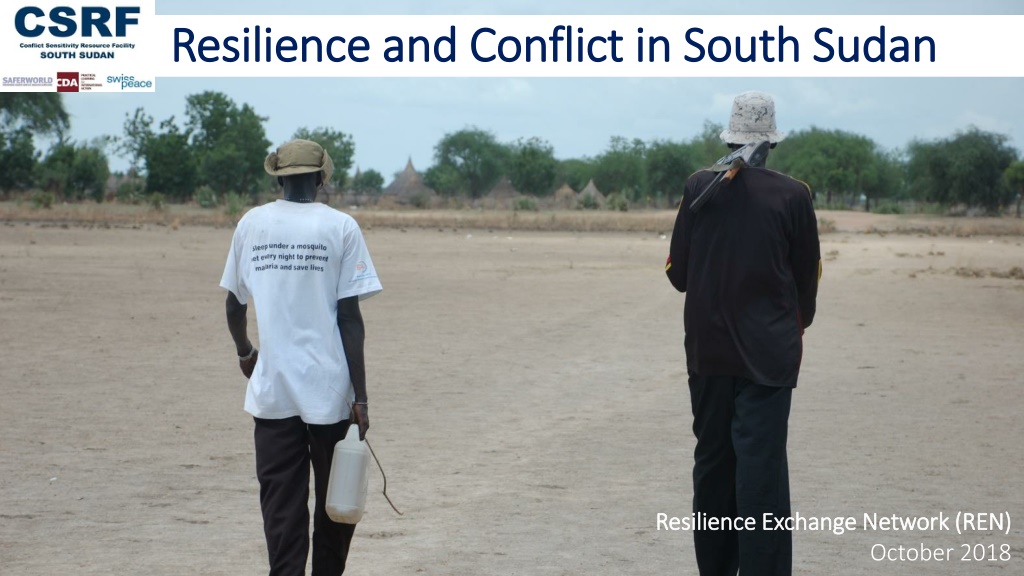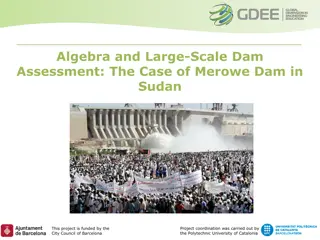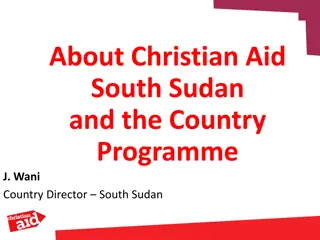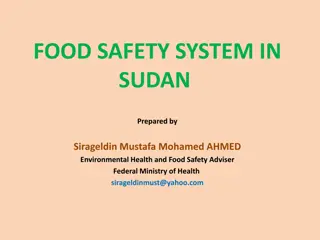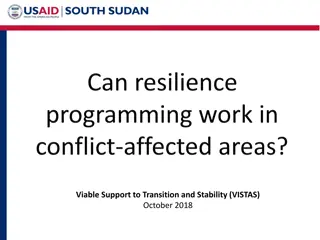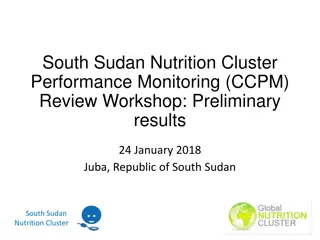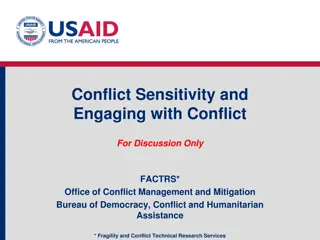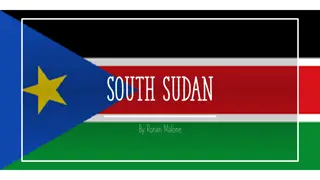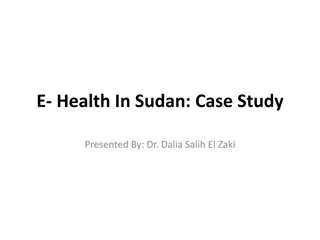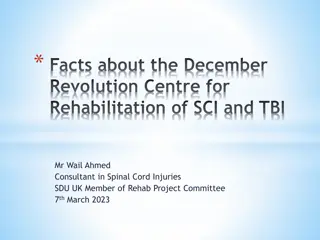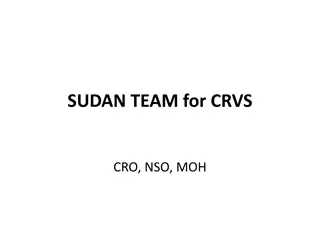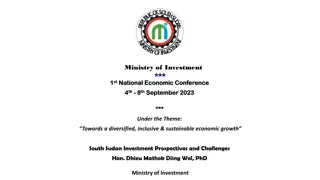Resilience and Conflict in South Sudan: Challenges and Recommendations
Enhancing resilience in conflict-affected areas like South Sudan involves navigating complex challenges. The Conflict Sensitivity Resource Facility (CSRF) aids in identifying and addressing divisive issues. Despite peace agreements, peace remains elusive on the ground due to governance issues and market dependence. Strengthening governance by supporting community accountability mechanisms is crucial. However, markets can exacerbate inequalities, requiring careful analysis to design effective cash aid programs.
Download Presentation

Please find below an Image/Link to download the presentation.
The content on the website is provided AS IS for your information and personal use only. It may not be sold, licensed, or shared on other websites without obtaining consent from the author. Download presentation by click this link. If you encounter any issues during the download, it is possible that the publisher has removed the file from their server.
E N D
Presentation Transcript
Resilience and Conflict in South Sudan Resilience and Conflict in South Sudan Resilience Exchange Network (REN) Resilience Exchange Network (REN) October 2018
The Conflict Sensitivity Resource Facility (CSRF) A resource for aid actors Helping aid actors identify and navigate divisive issues to conflict divisive issues to avoid contributing Helping aid actors identify and navigate connecting issues for their programmes to promote peace connecting issues as opportunities
Can we do resilience programming in conflict- affected areas? A peace peace agreement agreementbut no peace on the ground Strengthening governance governancewhen the government s a warring party A shift towards returns returns when many people can t go home Increasing market dependence Increasing market dependence alongside increasing vulnerability of market dependent populations Providing aid on a neutral and impartial basis in the face of access access impediments
How can we do resilience programming in conflict-affected areas?
Strengthening governance RISK: RISK: Strengthening governance when the government s a warring party RECOMMENDATION: RECOMMENDATION: Simultaneously supporting community accountability mechanisms can help promote accountable and transparent use of resources, and a social contract between communities and dutybearers.
Strengthening markets RISK: RISK: Markets can widen the gap between people who can afford goods and people who can t. This is as true for traders as consumers you need capital to buy goods to sell, leaving those who have it well positioned to monopolize new market opportunities. Cash aid voucher programmes have particular potential to drive these inequalities. Traders have to be part of the programme for vouchers to hold value against specific goods in their shops, which means pre-selecting and supporting certain traders over others. RECOMMENDATION: RECOMMENDATION: Thorough analysis of market supply, control and its ethnic dimensions will help aid actors design cash aid programmes that mitigate potential to drive divisions and conflict. For more, see Cash-based Programmes and Conflict (CSRF, Feb/Mar 2018)
Using land to support livelihoods RISK: RISK: By supporting specific individuals or groups use of land, aid can be at least perceived as legitimising claims over primary land rights to it. Critically, it can also change the value of land. RECOMMENDATION: RECOMMENDATION: Before intervening, aid agencies should ascertain, to the best of their ability, a comprehensive picture of local perceptions of legitimate housing, land and property (HLP) rights. Perceptions assessed should include those of current, previous and seasonal occupants, as well as local authorities. For more, see Housing, Land and Property, Aid and Conflict in South Sudan (CSRF, September 2018)
Islands of peace and hubs of stability RISK: RISK: Areas of relative stability are typically government-held urban centres. Favouring these locations for response inherently compromises impartiality and neutrality. RECOMMENDATION: RECOMMENDATION: Prioritise shared spaces rather than islands or hubs . Shared spaces includes areas of connectivity between centres and peripheries, productions areas and markets, and spaces shared between residents and displaced people. These stakeholders need to be involved at the analysis, assessment and design phase.
Islands of peace and hubs of stability RISK: RISK: Manipulation and/or appropriation of local grievances by national conflict actors and dynamics. RECOMMENDATION: RECOMMENDATION: Peacebuilding and conflict sensitive aid efforts to address the root causes of local conflict will help remove local theatres of conflict from the national conflict landscape, thereby increasing local resilience to national conflict dynamics.
For more information: Elizabeth White: Elizabeth White: ewhite@csrf-southsudan.org To sign up for updates and the Research Repository: To sign up for updates and the Research Repository: www.csrf-southsudan.org Follow us on Twitter: Follow us on Twitter: @CSRF_SS
